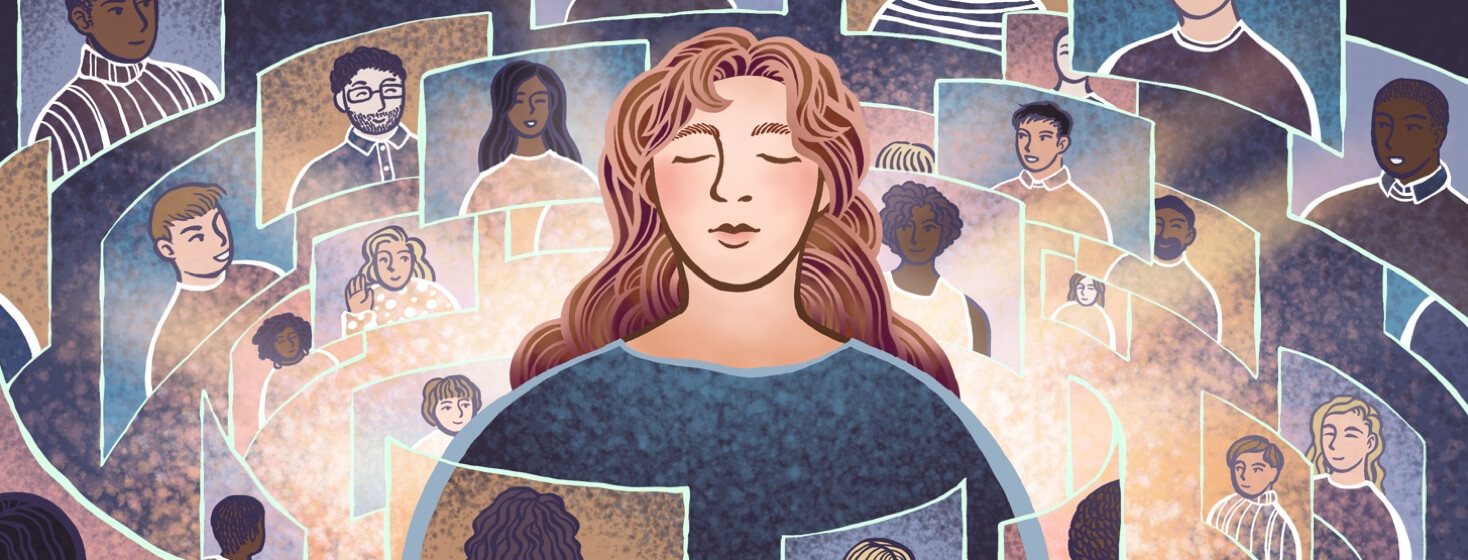Benefits of Narcolepsy Support Groups
I attended my first narcolepsy support group meeting in 2020. I was stunned to see the vibrancy and variety in people who attended. I felt incredibly validated while listening to their stories.
I finally realized that the suffering and struggles that I had experienced since my diagnosis were not unique to me. This was key to healing from the shame that had shrouded my heart from losing the things I lost due to the severity of my condition. I finally grasped that my symptoms did not make me less of a person.
How narcolepsy support groups help me
I actively participate in online Zoom support groups for people with narcolepsy. Most weeks, I attend at least 2 narcolepsy support group meetings. I find the meetings vital to my mental health and journey for many reasons, including:
Finding a narcolepsy family in support groups
The pandemic has me pretty isolated right now. I have found it difficult to have reason or opportunity for much in-person social interaction. In the end, I probably end up talking more to my narcolepsy service dog than actual humans.
However, I am able to form connections in the multiple online narcolepsy support groups that I attend. In these spaces, I am able to speak my truths. I have made a variety of friends from around the globe. I feel fortunate to have their influence in my life.
Featured Forum
View all responsesI do not have much in-person support right now. I was kicked out of my parents’ house after being unable to hold a job due to my symptoms. This, coupled with the pandemic and moving away from everything I’ve ever known, my support circle was almost nonexistent. I now have a narcolepsy family that I wouldn’t give up for anything.
Hearing others’ experiences and providing support
In support groups, it is common to share only when comfortable. When first starting out, I ended up listening to so many stories. I realized that each unique story shared common threads that I could relate to. I eventually found myself growing more relaxed and able to share in group after observing the strength and vulnerability of the members. I find vulnerability very courageous and slightly contagious.
I find it helpful to listen to a broad variety of perspectives of narcolepsy. I learn more about my condition every time I attend a group session! I have learned so much, ranging from coping mechanisms to helpful job accommodations. We may feel like we are sharing mundane information, but we run the risk of teaching attendees how to craft a life with narcolepsy. I have found my symptoms more manageable since attending narcolepsy support groups.
Sharing my own experiences and receiving support
I have always felt safe while sharing in these accepting spaces. I have a strong sense that we are all invested in each other’s journeys. When one of us is hurting, we are all hurting. Likewise, when one of us is celebrating, we are all celebrating alongside them.
Start a Forum
I have experienced a special camaraderie in narcolepsy support groups that I suspect can only be attained by knowing another person’s suffering. We are able to face each other, feeling the other’s pain twisting our own guts. Every time I attend a session, I am reminded that I am never truly alone.
I would like to thank my narcolepsy family for reminding me that I still hold power to create my own future. I never could have imagined the nature of the support that I now have. With it, I am ready and able to embrace my new life.

Join the conversation